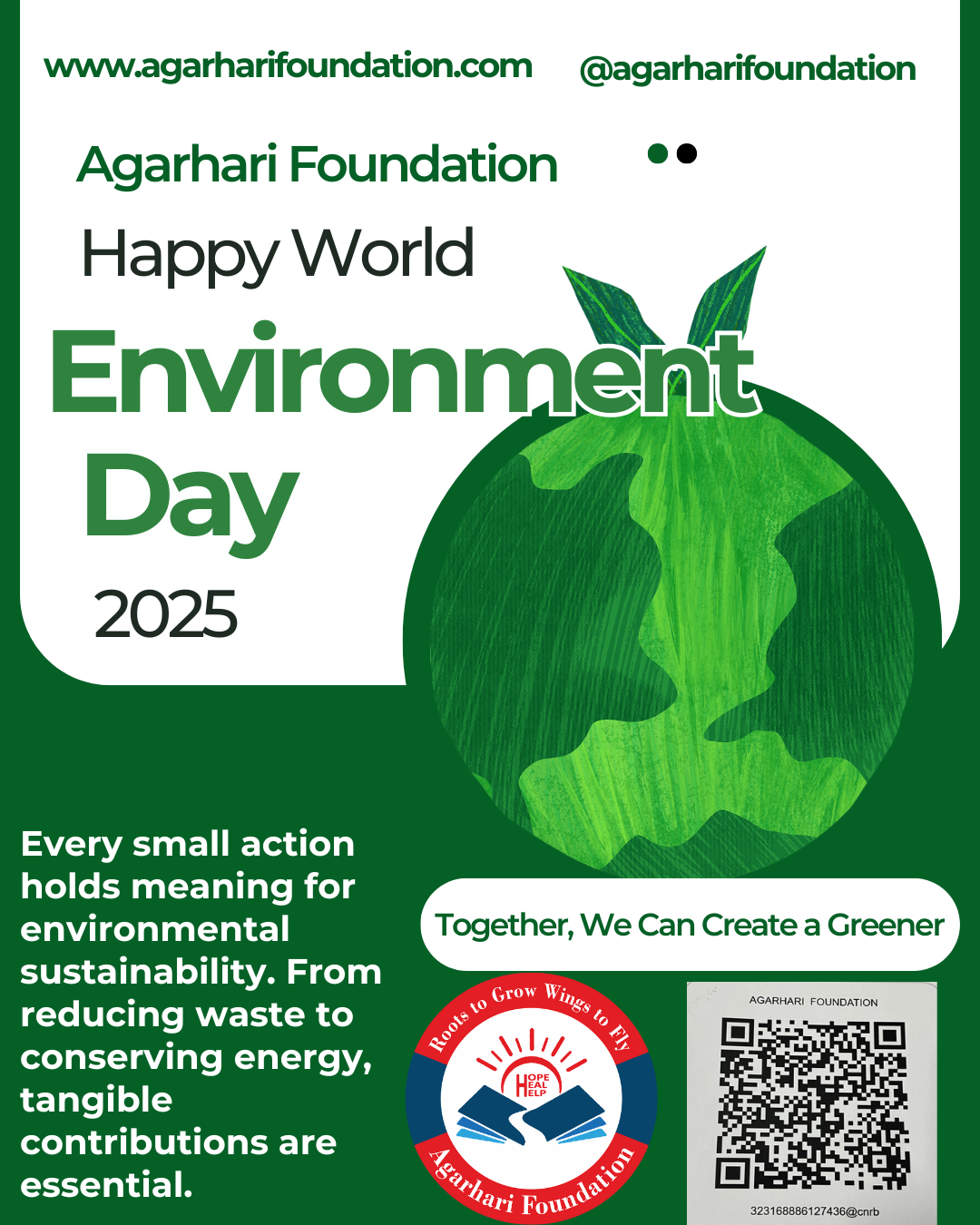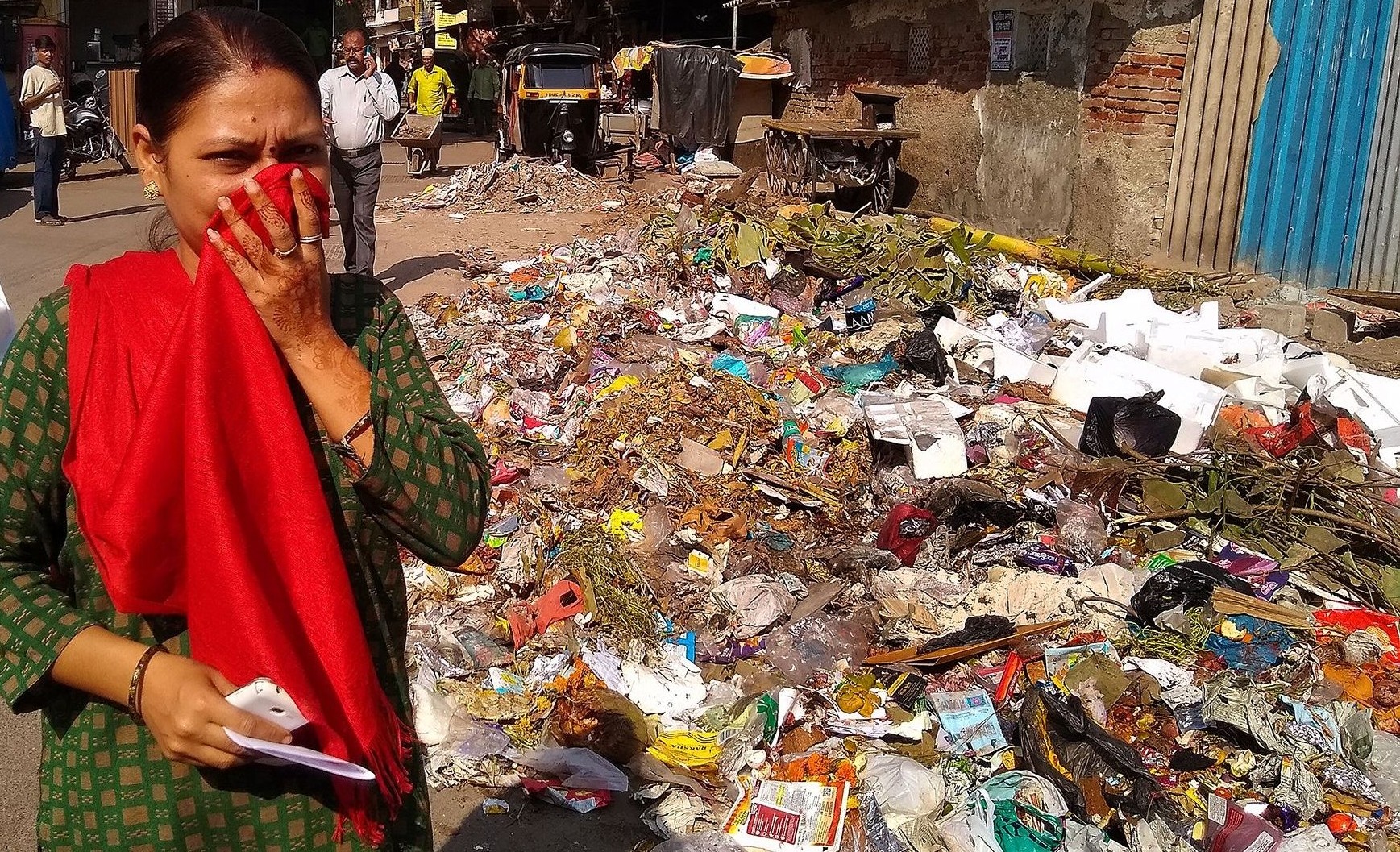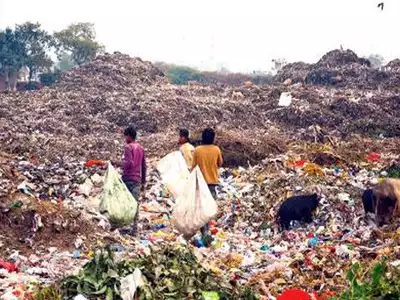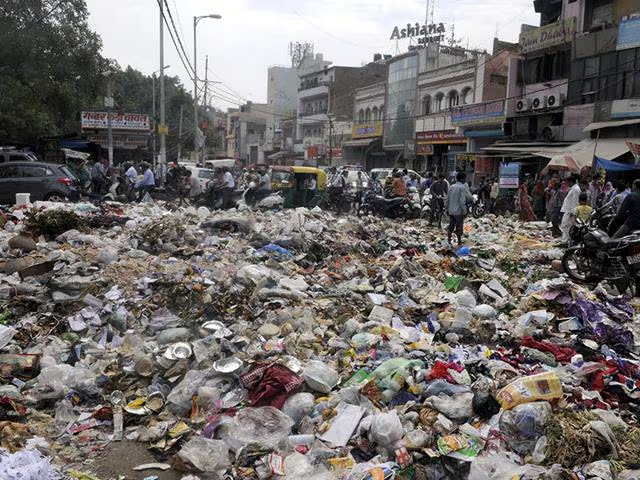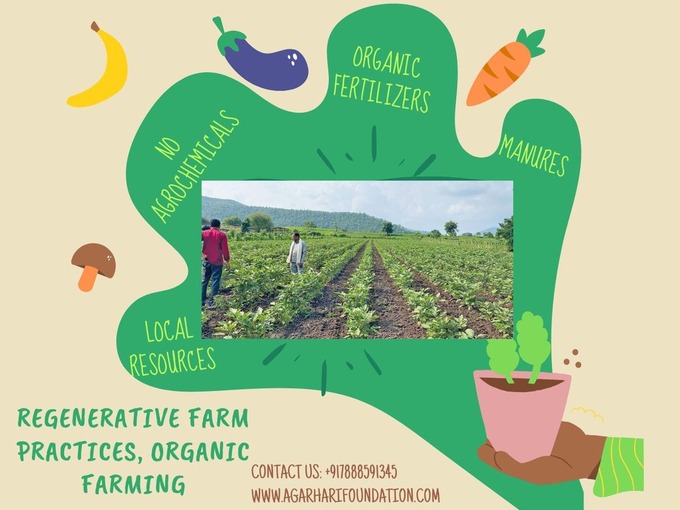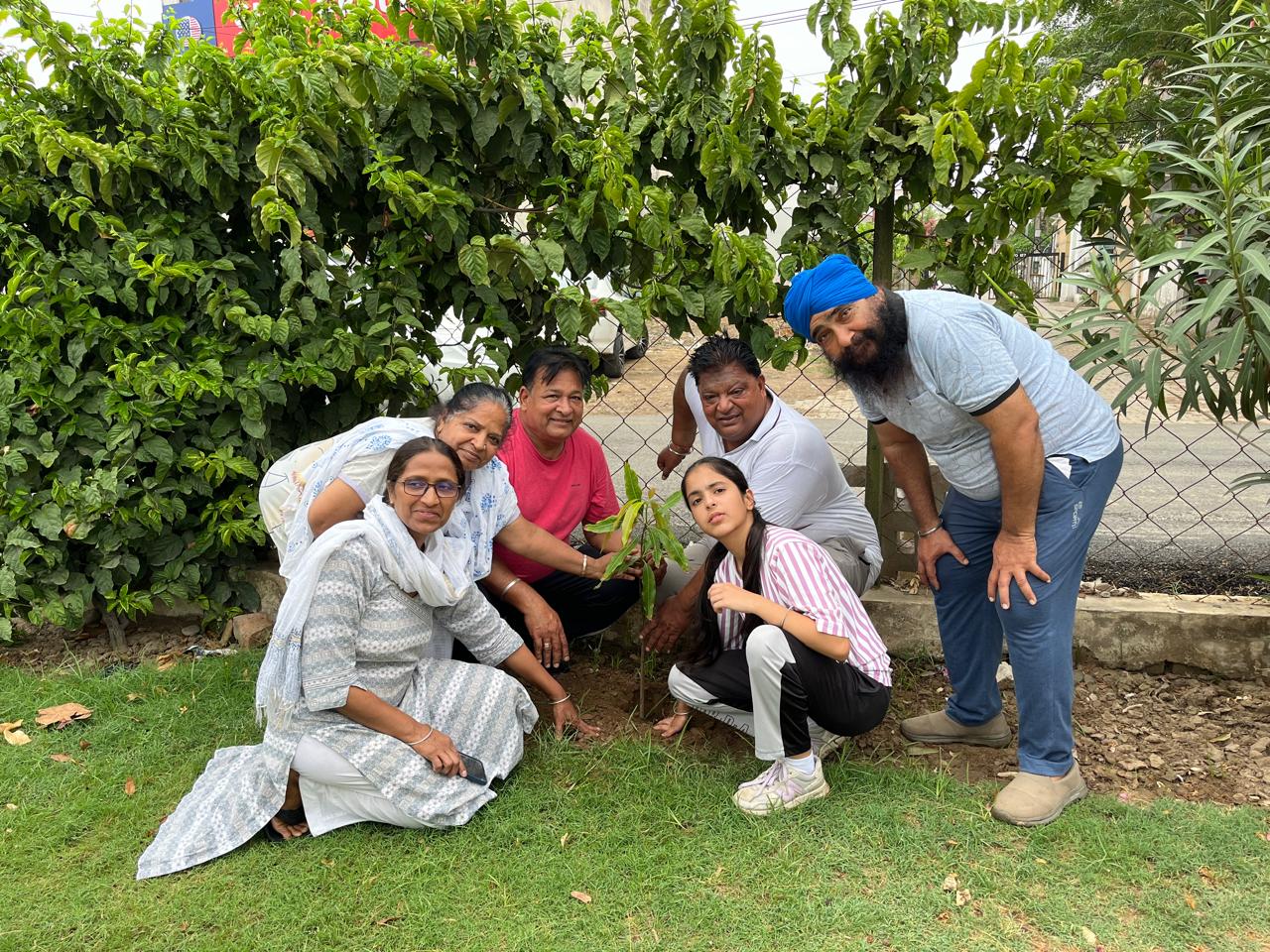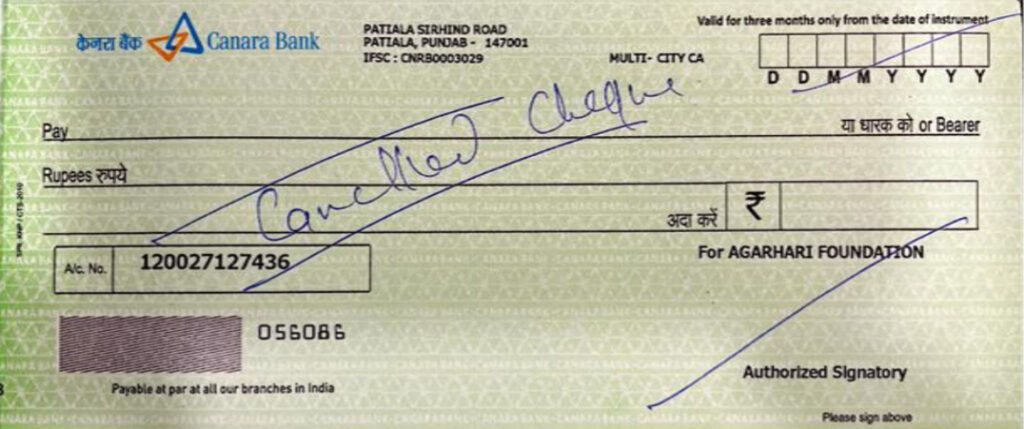“From Waste to Worth — Empowering Green Change Through Collaboration.” In today’s climate-challenged world, nonprofit organizations dedicated to environmental recovery are not just service providers—they are system changers. These mission-driven groups play a critical role in reversing environmental degradation, preventing waste, restoring ecosystems, and building a more sustainable future. But their impact doesn’t stop at on-groundwork. Environmental nonprofits are powerful catalysts for collaboration, often working at the intersection of policy, innovation, community, and technology. They bring together diverse stakeholders—business leaders, technology firms, funders, researchers, and civil society—to co-create scalable, effective solutions for the planet. Yet, despite their passion and purpose, many nonprofits struggle with scalability and long-term sustainability. Building a viable business model that balances mission, and market is a challenge in itself. Accessing capital, developing strategic partnerships, and measuring impact can seem like steep climbs for organizations focused on daily field operations. That’s why expert networks and accelerator programs have become lifelines for environmental nonprofits. These platforms offer vital support by sharing best practices, opening doors to funding opportunities, and providing technical guidance. From circular economy innovations to renewable energy advocacy, such alliances are helping nonprofits shift from fragmented action to system-wide transformation. At the heart of this movement is a belief: environmental recovery is not just a nonprofit’s job—it’s a collective responsibility. When we enable these organizations to thrive, we accelerate the planet’s healing process. Call to Action: If you’re a business leader, innovator, or investor, now is the time to support these environmental changemakers. Join the expert networks. Share your knowledge. Back their bold ideas. Because a greener future needs more than hope—it needs action, resources, and unity. Jk Jindal CEO Agarhari Foundation
WASTE MISMATCH: SMALL STEPS TODAY, SUSTAINABLE WORLD TOMORROW
WASTE MISMATCH: SMALL STEPS TODAY, SUSTAINABLE WORLD TOMORROW Purpose in Action: Small Acts, Big Impact: In our pursuit of a better tomorrow, the smallest steps often lay the foundation for the most lasting change. Every action we take—however minor it may seem—can ripple outward to influence our environment, our workplace culture, and our collective well-being. The Sustainable Development Goals (SDGs) are not just for governments and corporations; they’re a call to action for every individual. Here’s how you can align your everyday choices with a sustainable future. Reduce Waste, Embrace Sustainability: The first step to building a greener future starts with simple daily habits. Turn off lights, computers, and electronic devices when they’re not in use. Bring your own reusable coffee cup and shopping bag to reduce plastic consumption. These small, conscious choices lower your carbon footprint and inspire those around you. As a leader or team member, your behavior sets a powerful example—when one person takes initiative, others are encouraged to follow. “Sustainability begins with mindfulness. A single action taken today can multiply into a movement tomorrow.” Use Water Wisely: Water is one of the most precious and threatened resources on the planet. With more than two billion people experiencing water scarcity, every drop counts. Fix that leaking tap, report plumbing issues to your facilities team, and make sure follow-up happens. Use water-efficient practices at home and at work. Your vigilance could make the difference between waste and responsible stewardship. “Water conservation is not just a policy; it’s a personal responsibility.” Prioritize Mental Health for Yourself and Others: A sustainable world isn’t just one with clean air and water—it’s also a world where people feel seen, heard, and supported. Make it a habit to check in on colleagues, offer a smile, or sit together during breaks. Listen with empathy when someone needs to talk, and share mental health resources when needed. These acts of kindness not only improve workplace morale but also promote a culture of compassion and inclusiveness. “Caring for mental health is an investment in human sustainability.” Be Open to Learning: Growth doesn’t stop at skill development; it continues through curiosity, mentorship, and cultural understanding. Enroll in a course that excites you, explore books about different cultures, or take time to mentor someone in your field. Lifelong learning cultivates confidence, innovation, and more connected communities. It nurtures the kind of environment where people not only succeed but thrive together. “Learning is the fuel of progress—personally and globally.” Support Equity and Inclusion: Creating a just and equitable society starts in the spaces we inhabit every day—our offices, teams, and communities. Embrace diversity in thoughts and backgrounds, invite participation, and ensure every voice is heard and respected. Even small gestures of inclusion—acknowledging a suggestion or encouraging input—can deeply empower others and foster a culture of belonging. “Equity isn’t achieved by policy alone—it begins with people who choose to uplift others.” Volunteer Your Skills: You don’t need a formal CSR initiative to make a difference. Dedicating even an hour a week to mentor someone, guide a student, or support a non-profit organization can significantly amplify your impact. Whether it’s sharing your knowledge, offering your time, or collaborating with a cause—your skills can create real change where it’s needed most. “The world doesn’t just need volunteers—it needs everyday changemakers.” The Bigger Picture: A Sustainable World Starts with You: Each of these actions may seem small in isolation, but together they form a powerful blueprint for lasting change. When you reduce waste, save water, support mental well-being, keep learning, promote equity, and volunteer your skills—you’re living the SDGs. Your part of a movement to shape a world that is sustainable, inclusive, and humane. We need changemakers in every home, every office, every street. The journey to a sustainable future doesn’t begin in grand speeches—it begins with you. Small steps today. A sustainable world tomorrow. Let’s walk it together. Jk Jindal CEO Agarhari Foundation
Waste: Lofty Goals, Lingering Gaps
Waste: Lofty Goals, Lingering Gaps “Sanitation is more important than independence.”— This quote highlights how vital cleanliness was to Gandhi Ji, even more than political freedom. In recent years, India has set ambitious targets to tackle the mounting challenge of waste. From the Swachh Bharat Abhiyan to the Solid Waste Management Rules of 2016, policymakers have envisioned a cleaner, greener nation. Municipalities are tasked with segregation at source, scientific processing, and reduction in landfill dependency. Yet, as we stand amid piles of garbage and choked drains, it’s clear that while the goals are lofty, the gaps remain wide — and painfully persistent. The Policy Dream: India generates over 160,000 tonnes of solid waste every day, and this number is steadily rising with urbanization and population growth. To address this, the Solid Waste Management Rules, 2016, mandated door-to-door collection, source segregation, and waste processing. The Swachh Bharat Mission aimed to transform sanitation and waste handling across both rural and urban landscapes. Additionally, the Plastic Waste Management Rules introduced in 2016 and later amended, aimed to restrict single-use plastic and hold producers accountable through Extended Producer Responsibility (EPR). The intentions are commendable. The frameworks are in place. The language is right. But reality tells another story. Where the Gaps Lie Segregation Remains a Myth: Despite mandates, only a small percentage of households actually practice segregation of dry, wet, and hazardous waste. The lack of awareness, coupled with insufficient motivation or incentives, leads to mixed waste that ends up in landfills — unprocessed and polluting. Infrastructure Woes: Many urban local bodies lack the infrastructure for proper waste processing. Waste-to-energy plants are either underutilized or dysfunctional due to low calorific value of waste; while composting and recycling units operate at sub-optimal capacity. Informal Sector Left Behind: India’s army of ragpickers and waste workers, who form the invisible backbone of the recycling ecosystem, are often excluded from formal planning and benefits. Their knowledge remains untapped, and their livelihoods precarious. Plastic Ban Confusion: While states periodically announce bans on single-use plastic, implementation remains inconsistent. Markets continue to be flooded with illegal plastic bags, while manufacturers circumvent rules through loopholes or lack of monitoring. Landfills Overflowing: Most Indian cities still dump the majority of their waste into overflowing landfills, which emit methane, pollute groundwater, and often catch fire — creating a toxic hazard for nearby residents. Bridging the Divide Closing the gap between vision and reality requires more than regulations. It demands: Behavioural Change Campaigns: Real change begins at home. Massive awareness efforts, school-level education, and community-led waste management can foster a culture of accountability. Decentralized Waste Solutions: Empowering neighbourhoods and wards with local composting, biogas, and dry waste centres can reduce the burden on central landfills. Inclusive Waste Economy: Recognizing and integrating informal workers into formal systems with ID cards, health benefits, and capacity building will strengthen the ecosystem. Robust Monitoring and Incentives: Using technology to track compliance, and rewarding cities and citizens for responsible waste practices, can create a positive loop. Conclusion: India’s waste management goals are not unachievable — but they demand sustained commitment, collaboration, and community ownership. The road from policy paper to clean streets is long and fraught with challenges, but with consistent effort, the dream can become tangible. Because waste isn’t just about what we throw — it’s also about what we ignore. Picture: At Govt. High School Badwala Fatehgarh Sahib educating the school children on Hygiene & Sanitation. Mr. J.K. Jindal, Director of Agarhari Foundation, addressed the gathering and emphasized the importance of sanitation & hygiene in quality education to transforming lives. He encouraged students to dream big and make the most of the opportunities provided to them. He also appreciated the collective efforts of the community members in bringing about positive change.
The Plastic Waste Obsession: A Smokescreen for a Bigger Crisis?
The Plastic Waste Obsession: A Smokescreen for a Bigger Crisis? In the battle against environmental degradation, plastic waste has taken center stage. Governments, corporations, and environmental organizations rally against it, framing plastic as the ultimate villain of pollution. But while plastic waste is undoubtedly a problem, why is it the only household waste component receiving such overwhelming attention? What about the other categories of waste that are just as hazardous—if not more? The Overlooked Giants of Household Waste Beyond plastic, there exists a staggering variety of waste materials that pose severe threats to human health and climate stability. These include: Rubber & Leather: Industrial byproducts that take decades to decompose and often release harmful chemicals. Textiles (Natural & Artificial): Millions of tons of fabric waste—laden with dyes, microfibers, and synthetic blends—end up in landfills and water bodies every year. Paper & Wood: While biodegradable, their excessive production leads to deforestation, habitat destruction, and significant carbon emissions. Chipboard & Fiberboard: Treated with adhesives and synthetic resins, these materials release toxic compounds when decomposing or burned. Tetra Pak & Laminated Materials: Designed for convenience, these packaging materials are nearly impossible to recycle effectively. Hospital Waste: Discarded syringes, medical instruments, and contaminated disposables that can spread diseases and leach dangerous substances. Sewage Sludge: A byproduct of wastewater treatment, this waste can contain heavy metals, pharmaceuticals, and pathogens. Despite their alarming presence in landfills and water bodies, these categories are largely ignored in mainstream waste management discourse. Why? The Plastic Waste Mafia: A Global Black Market One possible explanation is the existence of a giant, uncontrolled, and highly lucrative market for plastic waste. Under the pretense of environmental responsibility, plastic waste is traded across borders, often ending up in countries with lax regulations. Unregulated Recycling: Millions of tons of plastic waste are exported to developing nations under the guise of recycling, only to be dumped or burned illegally. Corporate Greenwashing: Companies push plastic recycling narratives while continuing to produce vast amounts of single-use plastics, knowing full well that only a fraction gets properly recycled. Criminal Networks: Illegal plastic waste trafficking is a growing industry, with reports of forged recycling certifications, mis declaredshipments, and environmentally devastating disposal methods. A Greater Threat to Human Health & Climate Change The unchecked proliferation of all waste types—not just plastic—poses an existential crisis: Toxic Emissions: Incineration of mixed waste, including rubber, textiles, and hospital waste, releases carcinogens and greenhouse gases. Microplastics & Chemical Leachates: Contaminated landfill runoff pollutes soil and water, making its way into food chains. Deforestation & Resource Depletion: Paper, wood, and chipboard industries fuel large-scale habitat destruction and biodiversity loss. Public Health Hazards: From the spread of infectious diseases through medical waste to respiratory illnesses caused by burning mixed waste, the risks are immense. The Role of Waste Management in Aesthetics and Tourism Waste management is crucial for maintaining the aesthetics and appeal of a city, especially in terms of tourism. No one wants to visit a destination plagued with litter and garbage. Effective waste disposal ensures that streets, parks, and public spaces are clean and free from unsightly trash, enhancing a city’s overall beauty and attractiveness. This not only pleases tourists but also creates a positive image, encouraging more visitors and boosting the local economy. By prioritizing trash management, cities can preserve their natural landscapes and cultural heritage, making them more desirable tourist destinations. Compliance With Regulations Compliance with regulations is another crucial aspect of waste management. Strict rules and regulations are in place to ensure the proper disposal and handling of waste materials. Failure to comply with these regulations can result in hefty fines and legal consequences. It is essential to prioritize compliance to maintain a clean and sustainable environment for future generations. Climate Change Mitigation Climate change mitigation is a pressing global issue, and waste management is crucial. Improper waste disposal methods release greenhouse gases, such as methane, which significantly contribute to the potential effects of climate change. Implementing effective waste management strategies, such as recycling, composting, and proper landfill practices, can reduce these emissions and help mitigate climate change. By diverting waste from landfills and adopting more sustainable practices, we can minimize our carbon footprint and work towards a cleaner and greener future. Proper trash management is essential for achieving climate change mitigation goals. Future Sustainability One of the key reasons why waste management is important is because it ensures future sustainability. Proper waste management practices help to conserve resources and minimize environmental impact. By properly managing waste, we can prevent the depletion of natural resources, reduce pollution, and protect the health of our ecosystems. By implementing effective trash management strategies today, we can create a more sustainable future for future generations. Our responsibility is to make conscious choices about how we dispose of our waste to preserve our planet for future generations. The Need for a Holistic Approach Focusing solely on plastic waste allows industries and policymakers to conveniently ignore broader environmental crises. A true waste management revolution demands: Comprehensive Waste Categorization & Treatment—Beyond just plastic, all forms of hazardous waste must be addressed with equal urgency. Stricter Global Regulations—Preventing the illegal trade and improper disposal of waste. Consumer Awareness & Corporate Accountability—Shifting the burden from individuals to industries that perpetuate the waste problem. Sustainable Product Design & Circular Economy—Developing alternatives that minimize waste generation at the source. Conclusion The selective demonization of plastic waste while ignoring other toxic waste streams is no accident. It is a deliberate misdirection that benefits corporations, criminal networks, and complicit governments. If we truly want to combat pollution and climate change, we must dismantle the entire unsustainable waste system—not just the part that makes for convenient headlines.
Urban Problems: City Managers Need to Buckle Up to Ensure Waste Management
City Managers Need to Buckle Up to Ensure Waste Management Tick All Places for Primary and Secondary Waste Points: A comprehensive checklist for waste management points should be prepared by subject matter experts. This will instill a sense of responsibility towards public hygiene. Citizens must also remain vigilant and take ownership of maintaining their surroundings. Plan Waste Lifting to Every Last Detail: To uphold public hygiene and safety, waste collection points should be organized with meticulous planning. Every detail must be examined closely. The administration should establish clear regulatory “Dos & Don’ts” for waste collection, ensuring compliance by both citizens and waste management staff. Ban Proprietors Found at Fault for Waste Littering: Authorities must enforce strict inspections to identify instances of improper waste disposal. Designated officials should conduct regular checks, imposing hefty fines on violators and permanently banning proprietors found guilty of repeated offenses. However, authorities should also promote permanent alternatives to address systemic waste issues. Hire Experts for Inspections: The administration should employ trained waste management personnel to oversee inspections, recommend solutions, and ensure scientific waste disposal. Engaging citizens through technology can further enhance waste management practices. Plans should involve multiple stakeholders, including civil societies, to foster sustainable initiatives. Designated staff must also receive basic first aid training and necessary supplies. Deploy Designated Officials on the Ground: Strict compliance with waste management protocols is essential. Officials must be deployed at secondary waste points and dumping grounds to oversee adherence to regulations. Non-compliance should result in strict penalties, including the cancellation of operational licenses. Get an Insight into the Logistics: Before involving stakeholders, all risks should be communicated transparently to the public. Making cities safe and sustainable requires collaboration among four key groups: Government Private Sector Civil Society Communities Enforce Safety Regulations Strictly: Hygiene and safety regulations must be strictly enforced through regular inspections. Well-trained operators, emergency response teams, and effective waste control measures should be in place at all public events. Public awareness campaigns and immediate actions against violations of Solid Waste Management (SWM) Rules 2016 will contribute to cleaner urban spaces. Ditch the Lackadaisical Approach: Recurring heaps of garbage at fairs and public gatherings are often due to administrative negligence. Authorities must establish monitoring teams to oversee hygiene and safety measures at events. Event organizers should be required to display waste management plans at venues to ensure visitors are aware of dustbin and waste container placements. Ensure Proper Licenses Are Issued: To enhance hygiene and safety at public events, stronger regulations and routine inspections should be implemented. Clear protocols for waste collection bins, vendor licensing, and mandatory hygiene training for operators must be established. Surveillance technology and emergency alert systems can improve monitoring. Public awareness campaigns should reinforce hygiene standards. Increase Accountability: Officials must be held accountable for sanitation failures under the Urban Local Bodies (ULB) framework. Strict control measures are necessary to manage urban waste effectively. Issue Certificates to Civil Societies: Authorities should issue operational certificates to civil societies, private entities, and communities, conducting surprise visits to ensure that trained personnel are actively maintaining hygiene standards. This will help develop a culture of environmental and social responsibility. Improve the Screening Process & Resolve Conflicts Between Stakeholders: Urban governments struggle with service management due to capacity gaps and financial constraints. Effective stakeholder engagement is crucial: Civil society must focus on knowledge creation and advocacy. The private sector should accelerate innovation and inform policy. Communities must accept their responsibilities and increase autonomy. Stakeholders should continuously update their knowledge and approach to improve urban waste management systems. Regulatory Framework Needed: A formal regulatory framework aligned with SWM Rules 2016 is critical. Urban planners should anticipate future challenges, including resource scarcity and climate variability. They must leverage emerging technologies to create sustainable waste management systems. Rigorous Inspections Are Required: The urban administration must enforce strict licensing policies, conduct regular safety audits, and mandate structural certifications for fairs and public events. Adequate fire safety, controlled crowd management, and emergency response teams should be mandatory. Amusement rides and public attractions must undergo rigorous safety inspections, with accountability measures for negligence. Strengthen Urban Services: Standard Operating Procedures (SOPs) for public hygiene and safety must be published in newspapers, radio, and TV to ensure public compliance. Urban services should be designed to withstand shocks and stresses, maintaining network integrity. Build Capacities and Conduct Regular Checks: Urban sustainability depends on shared responsibility. While social media fosters discussion, it must be leveraged to build collective vision and action. Devolve Functions Responsibilities and accountabilities must be clearly defined among stakeholders. Transitioning from centralized city-wide waste grids to modular, locally managed systems can reduce peak loads and enhance resilience. Establishing strong local institutions and multi-stakeholder platforms is necessary to facilitate this shift. Enable Symmetry of Information Sharing Efficient data collection and transparent information sharing are vital for informed decision-making. Granular data analysis across various scales will enhance waste management policies. Multi-channel communication strategies should be employed to improve accessibility and stakeholder engagement. By implementing these measures, city managers can foster cleaner, healthier, and more sustainable urban environments, ensuring that waste management is handled with the urgency and efficiency it demands.
Regenerative Farming to Realize Food Security & Ecology in India
Regenerative Farming to Realize Food Security & Ecology in India Introduction India, home to over 1.4 billion people, faces a dual challenge: ensuring food security while maintaining ecological sustainability. Conventional agricultural practices, reliant on chemical inputs and monocropping, have led to soil degradation, water scarcity, and biodiversity loss. In response, regenerative farming is emerging as a transformative solution to restore soil health, enhance productivity, and strengthen rural livelihoods. Understanding Regenerative Farming Regenerative farming is an agricultural approach that prioritizes soil regeneration, biodiversity, and ecosystem resilience. It goes beyond sustainability by actively improving the health of farming ecosystems. Core principles include: Soil Enrichment: Using cover crops, composting, and natural fertilizers to enhance soil organic matter and microbial activity. Crop Diversity & Rotation: Implementing polyculture and crop rotation to break pest cycles and improve soil fertility. Minimal Soil Disturbance: Adopting no-till or low-till practices to preserve soil structure and reduce erosion. Water Conservation: Utilizing rainwater harvesting, micro-irrigation, and agroforestry to optimize water usage. Livestock Integration: Practicing managed grazing to enhance soil fertility and improve nutrient cycling. The Role of Regenerative Farming in Food Security Regenerative farming can significantly contribute to India’s food security through the following mechanisms: Increased Yield Stability: Healthier soils retain moisture and nutrients better, reducing dependency on synthetic fertilizers and irrigation. Climate Resilience: By sequestering carbon in soil and improving water retention, regenerative farming mitigates the impact of erratic weather patterns and droughts. Reduced Input Costs: Farmers save on expensive chemical inputs, leading to improved profitability and financial stability. Better Nutritional Quality: Regenerative practices enhance soil micronutrients, leading to more nutritious food production. Ecological Benefits of Regenerative Agriculture Soil Restoration: Increases organic matter and microbial diversity, reversing desertification and enhancing land productivity. Biodiversity Conservation: Encourages pollinators, beneficial insects, and wildlife to create balanced ecosystems. Water Conservation: Enhances groundwater recharge, reduces runoff, and prevents contamination of water bodies. Carbon Sequestration: Captures atmospheric carbon dioxide in soils, helping combat climate change. Historical Insights and Environmental Philosophy A particularly thought-provoking moment in the Indian history discussion will come when the historian analyses Mahatma Gandhi’s environmental philosophy. While acknowledging Gandhi’s deep ecological wisdom, we must reassess certain ideas, such as the romanticization of village life. We never fully heeded Gandhi’s warnings about excessive industrialization and unsustainable economic growth, yet they remain profoundly relevant today. Addressing India’s role in the global environmental crisis, we acknowledge the historical responsibility of Western nations in driving climate change. However, we must not use this as an excuse for inaction. While the West has contributed disproportionately to climate change, problems like groundwater depletion across India—particularly in Punjab—air pollution in North India, and urban mismanagement are of our own making. We must leave the audience with a powerful message—the need to integrate historical wisdom with modern economic planning. By recognizing the past while embracing innovative solutions like regenerative farming, India can create a sustainable and resilient agricultural future. Challenges and the Way Forward Despite its benefits, regenerative farming faces challenges such as a lack of awareness, initial transition costs, and policy constraints. To scale up adoption in India, the following steps are crucial: Government Support: Policies should incentivize regenerative practices through subsidies, technical training, and research. Farmer Education: Training programs and demonstrations must be conducted to showcase long-term benefits. Market Linkages: Promoting organic and regeneratively grown produce through fair pricing and certification. Public-Private Partnerships: Collaboration between government, NGOs, and agribusinesses can drive adoption at scale. Conclusion: Regenerative farming presents a viable solution to ensure food security while protecting India’s ecological health. By transitioning towards regenerative agricultural practices, India can safeguard its natural resources, empower farmers, and achieve long-term sustainability. The time to act is now—investing in regenerative farming is investing in a healthier, food-secure future for India.
Misguided Waste Management Strategies and Insufficient Approach
Effective waste management is a critical concern, especially in developing countries experiencing rapid urbanization and population growth. Misguided strategies and insufficient ground-level monitoring have led to environmental degradation and public health risks. Addressing these challenges requires a multifaceted approach that includes increasing public awareness, enforcing regulations, leveraging technology, and fostering community involvement. Challenges in Waste Management Developing nations often face obstacles such as inadequate infrastructure, limited financial resources, and low public awareness regarding proper waste disposal. These challenges contribute to environmental degradation, public health issues, and economic losses. The Role of Community Involvement Community engagement is pivotal in enhancing waste management practices. Active participation from residents can lead to more effective waste reduction, recycling, and disposal initiatives. Neighbourhood recycling programs, community cleanup events, and educational workshops exemplify how collective efforts can foster a culture of environmental responsibility. Strategies to Enhance Community Participation Education and Awareness: Informing residents about the environmental and health impacts of improper waste disposal can motivate proactive behaviour. Educational campaigns can highlight the benefits of recycling and proper waste segregation. Incentivization: Implementing reward systems for recycling and waste reduction can encourage community involvement. For example, offering discounts on utility bills or providing community recognition can motivate residents to participate actively. Collaboration: Partnerships between local governments, NGOs, and community groups can pool resources and expertise for more effective waste management solutions. Collaborative efforts can lead to the development of comprehensive waste management plans that address local needs. Case Studies of Successful Community Engagement in India Indore’s Waste Management Transformation: Indore has consistently ranked as the cleanest city in India due to its efficient waste management system. The municipal corporation implemented door-to-door waste collection, enforced strict segregation policies, and established composting units. Community participation was encouraged through awareness campaigns and incentivization, leading to a significant reduction in waste sent to landfills. Swachh Bharat Mission (SBM): Launched in 2014, SBM is a nationwide initiative aiming to eliminate open defecation, improve urban and rural sanitation, and promote scientific waste management. The mission emphasizes waste segregation at the source and encourages the use of modern waste management technologies. Community involvement has been a cornerstone of SBM, with citizens actively participating in cleanliness drives and awareness programs. Plastic Waste Management Rules (2018): These regulations introduced Extended Producer Responsibility (EPR), making manufacturers and importers accountable for the end-of-life management of plastic products. The rules also imposed bans on certain single-use plastics and promoted the development of recycling infrastructure. Public awareness campaigns have been integral to the successful implementation of these rules. Waste to Wealth Mission: This initiative focuses on transforming waste into valuable resources through innovative technologies and processes. Collaborations between government bodies and private enterprises have led to the development of customized solutions for waste management challenges, such as the deployment of specialized equipment for drain cleaning in urban areas. Additional Measures to Improve Waste Management Strict Enforcement and Surveillance: Implementing and enforcing stringent waste management regulations can deter improper disposal practices. Increasing surveillance and imposing penalties on violators can promote compliance and accountability. Leveraging Technology: Utilizing technological solutions, such as waste tracking systems and mobile applications for reporting illegal dumping, can enhance monitoring and management efficiency. NGO Involvement: Engaging non-governmental organizations to promote awareness and facilitate community participation can bridge gaps between authorities and residents, fostering trust and cooperation. In conclusion, addressing waste management challenges requires steering misguided strategies towards effective, community-cantered approaches. By increasing public awareness, enforcing regulations, leveraging technology, and fostering collaboration, communities can develop sustainable waste management practices that promote cleanliness and environmental health. Source: The Green Planet Solutions Earth5R Home | Principal Scientific Adviser
Urban Problems: City Managers Need to Buckle Up to Ensure Waste Management
Urban Problems: City Managers Need to Buckle Up to Ensure Waste Management Tick All Places for Primary and Secondary Waste Points: A comprehensive checklist for waste management points should be prepared by subject matter experts. This will instill a sense of responsibility towards public hygiene. Citizens must also remain vigilant and take ownership of maintaining their surroundings. Plan Waste Lifting to Every Last Detail: To uphold public hygiene and safety, waste collection points should be organized with meticulous planning. Every detail must be examined closely. The administration should establish clear regulatory “Dos & Don’ts” for waste collection, ensuring compliance by both citizens and waste management staff. Ban Proprietors Found at Fault for Waste Littering: Authorities must enforce strict inspections to identify instances of improper waste disposal. Designated officials should conduct regular checks, imposing hefty fines on violators and permanently banning proprietors found guilty of repeated offenses. However, authorities should also promote permanent alternatives to address systemic waste issues. Hire Experts for Inspections: The administration should employ trained waste management personnel to oversee inspections, recommend solutions, and ensure scientific waste disposal. Engaging citizens through technology can further enhance waste management practices. Plans should involve multiple stakeholders, including civil societies, to foster sustainable initiatives. Designated staff must also receive basic first aid training and necessary supplies. Deploy Designated Officials on the Ground: Strict compliance with waste management protocols is essential. Officials must be deployed at secondary waste points and dumping grounds to oversee adherence to regulations. Non-compliance should result in strict penalties, including the cancellation of operational licenses. Get an Insight into the Logistics: Before involving stakeholders, all risks should be communicated transparently to the public. Making cities safe and sustainable requires collaboration among four key groups: Government Private Sector Civil Society Communities Enforce Safety Regulations Strictly: Hygiene and safety regulations must be strictly enforced through regular inspections. Well-trained operators, emergency response teams, and effective waste control measures should be in place at all public events. Public awareness campaigns and immediate actions against violations of Solid Waste Management (SWM) Rules 2016 will contribute to cleaner urban spaces. Ditch the Lackadaisical Approach: Recurring heaps of garbage at fairs and public gatherings are often due to administrative negligence. Authorities must establish monitoring teams to oversee hygiene and safety measures at events. Event organizers should be required to display waste management plans at venues to ensure visitors are aware of dustbin and waste container placements. Ensure Proper Licenses Are Issued: To enhance hygiene and safety at public events, stronger regulations and routine inspections should be implemented. Clear protocols for waste collection bins, vendor licensing, and mandatory hygiene training for operators must be established. Surveillance technology and emergency alert systems can improve monitoring. Public awareness campaigns should reinforce hygiene standards. Increase Accountability: Officials must be held accountable for sanitation failures under the Urban Local Bodies (ULB) framework. Strict control measures are necessary to manage urban waste effectively. Issue Certificates to Civil Societies: Authorities should issue operational certificates to civil societies, private entities, and communities, conducting surprise visits to ensure that trained personnel are actively maintaining hygiene standards. This will help develop a culture of environmental and social responsibility. Improve the Screening Process & Resolve Conflicts Between Stakeholders: Urban governments struggle with service management due to capacity gaps and financial constraints. Effective stakeholder engagement is crucial: Civil society must focus on knowledge creation and advocacy. The private sector should accelerate innovation and inform policy. Communities must accept their responsibilities and increase autonomy. Stakeholders should continuously update their knowledge and approach to improve urban waste management systems. Regulatory Framework Needed: A formal regulatory framework aligned with SWM Rules 2016 is critical. Urban planners should anticipate future challenges, including resource scarcity and climate variability. They must leverage emerging technologies to create sustainable waste management systems. Rigorous Inspections Are Required: The urban administration must enforce strict licensing policies, conduct regular safety audits, and mandate structural certifications for fairs and public events. Adequate fire safety, controlled crowd management, and emergency response teams should be mandatory. Amusement rides and public attractions must undergo rigorous safety inspections, with accountability measures for negligence. Strengthen Urban Services: Standard Operating Procedures (SOPs) for public hygiene and safety must be published in newspapers, radio, and TV to ensure public compliance. Urban services should be designed to withstand shocks and stresses, maintaining network integrity. Build Capacities and Conduct Regular Checks: Urban sustainability depends on shared responsibility. While social media fosters discussion, it must be leveraged to build collective vision and action. Devolve Functions Responsibilities and accountabilities must be clearly defined among stakeholders. Transitioning from centralized city-wide waste grids to modular, locally managed systems can reduce peak loads and enhance resilience. Establishing strong local institutions and multi-stakeholder platforms is necessary to facilitate this shift. Enable Symmetry of Information Sharing Efficient data collection and transparent information sharing are vital for informed decision-making. Granular data analysis across various scales will enhance waste management policies. Multi-channel communication strategies should be employed to improve accessibility and stakeholder engagement. By implementing these measures, city managers can foster cleaner, healthier, and more sustainable urban environments, ensuring that waste management is handled with the urgency and efficiency it demands.
“Balance Economics with Swachhta, Strive to Strike a Balance”
“Balance Economics with Swachhta, Strive to Strike a Balance” On March 8, 2025, International Women’s Day and School Children Scholarship Facilitation Day was celebrated at Elementary School, Model Town, Patiala. The event, organized in collaboration with the Democratic Teachers Front, served as a platform to inspire young minds while promoting a cleaner and greener environment. During the program, JK Jindal, CEO cum Director of Agarhari Foundation, addressed the gathering and honored bright students for their achievements. Spot competitions were also held to assess the intellectual capabilities of the children, encouraging their academic growth and inspiring future success. The event highlighted the importance of education and empowerment, fostering a brighter future for young minds. In addition to celebrating academic excellence, the event emphasized the critical need for waste management and Swachhta (cleanliness). JK Jindal highlighted that balancing economic progress with environmental responsibility is vital for sustainable growth. Cities often face challenges where rapid development inadvertently leads to increased waste generation. He stressed the importance of uniting efforts to combat this growing concern without hindering urban development. Ensure public interest is to watched and strive to strike a balance. Adopting a flexible yet strategic approach can help maintain cleanliness without restricting economic expansion. Consulting experts, implementing advanced waste management systems, and encouraging community participation are essential steps in this direction. Simple practices like segregating waste at the source, promoting recycling, and involving local communities in cleanliness drives can significantly improve urban hygiene standards. The event concluded with a call to action for students, teachers, and the public to actively contribute to maintaining clean surroundings. By balancing economic progress with environmental care, we can create sustainable cities where growth and cleanliness go hand in hand. The Agarhari Foundation continues to advocate for innovative approaches that empower communities to build a healthier and more prosperous future. Ensure public interest is to watched and strive to strike a balance. Need more deliberation — Swachh Bharat dream is fading day by day without the participation of our citizens. The issue needs to be deliberated at an appropriate level. Adopting a flexible yet strategic approach can help maintain cleanliness without restricting economic expansion. Consulting experts, implementing advanced waste management systems, and encouraging community participation are essential steps in this direction. Simple practices like segregating waste at the source, promoting recycling, and involving local communities in cleanliness drives can significantly improve urban hygiene standards. The event concluded with a call to action for students, teachers, and the public to actively contribute to maintaining clean surroundings. By balancing economic progress with environmental care, we can create sustainable cities where growth and cleanliness go hand in hand. The Agarhari Foundation continues to advocate for innovative approaches that empower communities to build a healthier and more prosperous future.
Balance Economics with Swachhta, Strive to Strike a Balance
On March 8, 2025, International Women’s Day and School Children Scholarship Facilitation Day was celebrated at Elementary School, Model Town, Patiala. The event, organized in collaboration with the Democratic Teachers Front, served as a platform to inspire young minds while promoting a cleaner and greener environment. During the program, JK Jindal, CEO cum Director of Agarhari Foundation, addressed the gathering and honored bright students for their achievements. Spot competitions were also held to assess the intellectual capabilities of the children, encouraging their academic growth and inspiring future success. The event highlighted the importance of education and empowerment, fostering a brighter future for young minds. In addition to celebrating academic excellence, the event emphasized the critical need for waste management and Swachhta (cleanliness). JK Jindal highlighted that balancing economic progress with environmental responsibility is vital for sustainable growth. Cities often face challenges where rapid development inadvertently leads to increased waste generation. He stressed the importance of uniting efforts to combat this growing concern without hindering urban development. Ensure public interest is to watched and strive to strike a balance. Adopting a flexible yet strategic approach can help maintain cleanliness without restricting economic expansion. Consulting experts, implementing advanced waste management systems, and encouraging community participation are essential steps in this direction. Simple practices like segregating waste at the source, promoting recycling, and involving local communities in cleanliness drives can significantly improve urban hygiene standards. The event concluded with a call to action for students, teachers, and the public to actively contribute to maintaining clean surroundings. By balancing economic progress with environmental care, we can create sustainable cities where growth and cleanliness go hand in hand. The Agarhari Foundation continues to advocate for innovative approaches that empower communities to build a healthier and more prosperous future. Ensure public interest is to watched and strive to strike a balance. Need more deliberation Swachh Bharat dream is fading day by day without the participation of our citizens. The issue needs to be deliberated at an appropriate level. Adopting a flexible yet strategic approach can help maintain cleanliness without restricting economic expansion. Consulting experts, implementing advanced waste management systems, and encouraging community participation are essential steps in this direction. Simple practices like segregating waste at the source, promoting recycling, and involving local communities in cleanliness drives can significantly improve urban hygiene standards. The event concluded with a call to action for students, teachers, and the public to actively contribute to maintaining clean surroundings. By balancing economic progress with environmental care, we can create sustainable cities where growth and cleanliness go hand in hand. The Agarhari Foundation continues to advocate for innovative approaches that empower.

